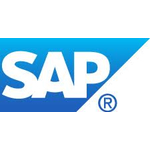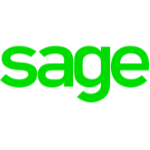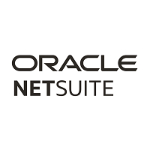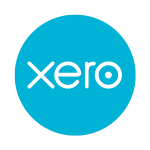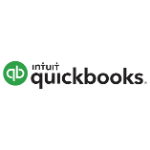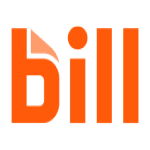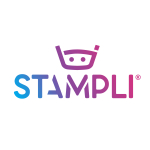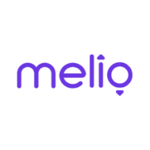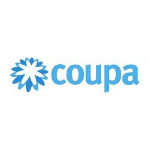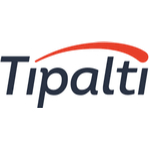TechnologyCounter provides genuine, unbiased real user reviews to help buyers make informed decisions. We may earn a referral fee when you purchase through our links, at no extra cost to you.
List of 15 Best Accounts Payable Software
Showing 1 - 15 of 88 productsSAP Business ByDesign is a cloud-based software solution that offers an integrated suite of tools for managing various aspects of an organization including finance, human resources, sales, procurement, and more. It provides businesses of all sizes wi...Read SAP Business ByDesign Reviews
Sage Business Cloud Accounting software has been designed to cater to the requirements of start-ups, individuals operating solo businesses, and small enterprises. With a range of plans to choose from, you can select the one that best suits your busi...Read Sage Accounting Reviews
Oracle NetSuite is a cloud-based business management software designed to help companies of all sizes streamline their operations and boost their growth. With its user-friendly interface features, NetSuite is a game changer in the world of business s...Read Oracle NetSuite Reviews
Zoho Books is a cloud accounting software that allows you to easily manage the money flowing in and out of your business. It offers features for managing finances, invoicing clients, tracking expenses, generating financial reports, and much more...Read Zoho Books Reviews
Xero Accounting is a cloud-based accounting software designed to simplify and streamline financial management for individuals and small businesses. With its user-friendly interface features, Xero helps users efficiently track income, expenses, and ca...Read Xero Accounting Reviews
QuickBooks Online is a user-friendly accounting software designed to simplify financial management for small businesses. With its cloud-based platform, users can easily access and organize their financial data anytime, anywhere. From creating invoice...Read QuickBooks Online Reviews
Bill is a web-based accounting solution that offers ACH payment capabilities, as well as the ability to send electronic invoices and payment reminders. This platform streamlines the process of resolving financial issues and its exclusive website cont...Read Bill Reviews
Stampli is the missing piece in your business puzzle. With its intuitive and user-friendly interface, Stampli streamlines invoice processing and approval, saving you time and money. Say goodbye to tedious paperwork and hello to smooth is a financial...Read Stampli Reviews
FreshBooks account management software simplifies your financial responsibilities and ensures speedy and safe performance. Easily generate invoices, monitor time, and record expenses within minutes. We are dedicated to delivering exceptional customer...Read FreshBooks Reviews
Melio is a software designed to simplify payment processes for businesses of all sizes. With its user-friendly interface and innovative features, Melio streamlines payment collection and allows businesses to focus on what matters most - growth and su...Read Melio Reviews
Coupa is a leading cloud-based spend management platform that helps organizations effectively manage their expenses, improve efficiency and drive business growth. With its user-friendly interface and powerful features, Coupa streamlines procurement,...Read Coupa Reviews
Airbase, a revolutionary software designed to streamline your businesss financial operations. Say goodbye to manual processes and hello to efficiency and accuracy. With Airbase, managing expenses and payments has never been easier. Experience seamles...Read Airbase Reviews
Ramp, the innovative software that is revolutionizing the way businesses manage their data and analytics. With Ramp, you can easily access, organize, and analyze your data in real-time, allowing for streamlined decision making and increased efficienc...Read Ramp Reviews
Yooz is a software that simplifies and streamlines your accounting processes. Say goodbye to manual data entry and tedious paperwork, and hello to efficient and accurate financial management. With Yooz, you can now focus on growing your business inst...Read Yooz Reviews
Tipalti is a leading provider of automated global payment management solutions, empowering businesses to streamline their finance operations and reduce the complexity of payment processes. With its user-friendly platform capabilities, Tipalti helps c...Read Tipalti Reviews
- What Is Accounts Payable Software?
- Top Reasons Why Businesses Need Accounts Payable Software?
- What Are the Top Key Features of Accounts Payable Software?
- What Are the Top Benefits of Accounts Payable Software?
- What Are the Steps to Choose the Right Accounts Payable Software?
- What Are the Types of Accounts Payable Software for Different Industries?
- What Are the Technology Trends for Best Accounts Payable Software?
- What Are the Deployment Options for Accounts Payable Software?
What Is Accounts Payable Software?
Accounts payable software is a form of accounting software utilized for the purpose of monitoring and administering non-payroll expenditures, namely the funds that a firm is obligated to pay to vendors and other entities to whom it owes money.
The top accounts payable software process is automated through several tasks such as invoice entry, payment tracking, financial data calculation, and report generation. The primary objective of this software is to offer a precise and effective means of overseeing payable accounts.
The utilization of this software facilitates the automation of bill, invoice, and vendor payment processes, hence diminishing the temporal requirements associated with accounts payable operations. Additionally, this feature enables users to monitor their expenditures in real-time, thereby ensuring timely settlement of accounts. The top accounts payable software securely keeps all data within an electronic database, hence facilitating convenient access to financial information.
Additionally, the best accounts payable software has the capability to generate reports, which may be utilized to conduct a more comprehensive analysis of expenses and outstanding amounts. In summary, software accounts payable facilitates financial management for firms. The implementation of this system enhances the efficiency and precision of the current accounts payable procedure.
Additionally, best accounts payable software offers significant data and analysis pertaining to accounts payable accounts, enabling enterprises to enhance their financial management by attaining enhanced oversight and transparency.
Top Reasons Why Businesses Need Accounts Payable Software?
1. The process of automating manual tasks, such as the manual entry of invoices and the printing of checks.
2. Enhanced monitoring of bills, deadlines, and financial transactions for improved efficiency.
3. The capacity to efficiently and precisely handle a large quantity of invoices.
4. Enhanced financial transparency facilitated by comprehensive reporting mechanisms and integrated analytical tools.
5. The implementation of measures aimed at decreasing the time and expense required for paper processing.
6. Enhanced precision in invoice processing and optimization of operational workflows.
7.The capacity to expedite the process of reconciling with vendors.
8. The implementation of automated data entry systems has been shown to effectively mitigate errors that may arise during computations and data gathering processes.
9. The payment process is simplified through the automatic routing of invoices for approval, resulting in increased ease of use.
10. The capacity to adjust payment schedules at will.
11. Enables the consolidation of payment and accounts payable software operations
12. The enhancement of vendor relationships has been attributed to the use of improved communication practices and increased accuracy.
13. The prevention of tampering or fraudulent acts by the implementation of an audit trail.
14. The enhanced adherence to internal policies and external legislation.
15. The optimization of cash collection is enhanced by the reduction of payment processing expenses and the extension of payment terms.
What Are the Top Key Features of Accounts Payable Software?
The key features of accounting payable software include:
1. Automated Invoice Capture: The proposed accounts payable systems aims to automate the retrieval of bills from vendors, subsequently subjecting them to electronic processing for the purpose of approval, and finally directing them towards the payment process.
2. Streamlined Workflows and Approval Processes: This proposal aims to optimize the process of requesting, approving, and paying bills by eliminating the need for manual review, coding, and payment delays.
3. Vendor and GL/ERP Integration: Effortlessly incorporate with vendor systems, Enterprise Resource Planning (ERP), and other financial systems to offer comprehensive insight into payment status and vendor information.
4. Payment Processing and Banking Integration: The objective is to implement automated and efficient procedures for payment processing and scheduling, with a focus on seamless integration with banking systems to facilitate wire and ACH payments.
5. Multi-Currency Support: The accounts payable systems facilitate the management of payments in many currencies, hence eliminating the need for manual foreign exchange processes and resulting in cost reduction.
6. Fraud Prevention and Payment Compliance: Enhance payment compliance management, security, and tracking measures to improve accuracy and mitigate fraudulent activities, while ensuring alignment with prevalent industry standards.
7. Robust Security and Encryption: To safeguard sensitive information, it is imperative to employ contemporary encryption techniques and security standards.
8. Analytic Dashboards and Reporting: Produce prompt and perceptive analyses regarding invoice payments and patterns in order to facilitate enhanced decision-making processes.
What Are the Top Benefits of Accounts Payable Software?
The top benefits of accounts payable software are:
1. Streamlined processes – Accounts payable software is designed to streamline and automate various tasks related to bill payment, including invoice processing, vendor payments, and reconciliations. This practice results in a reduction in the duration and exertion required to accomplish certain chores, hence creating additional time availability for undertaking other duties.
2. Reduced paperwork – The utilization of accounts payable systems obviates the necessity for traditional paper-based procedures. The process of digitizing documents involves converting physical copies into electronic format, which can then be stored in a computerized system for convenient access and efficient handling.
3. Greater accuracy –The implementation of automation in various processes leads to a reduction in human errors, hence enabling enhanced accuracy and facilitating improved decision-making capabilities.
4. Improved cash flow– The implementation of accounts payable systems enables firms to enhance their cash flow management capabilities.
5. Improved vendor relationships – The implementation of automation systems effectively mitigates delays, so guaranteeing timely remuneration to suppliers and minimizing the likelihood of payment omissions or tardiness.
6. Enhanced visibility – Best accounts payable software provides businesses with greater visibility into their finances, allowing them to better track and manage their accounts payable.
7. Improved security– Software accounts payable is specifically engineered with advanced security protocols in place to safeguard confidential information. This measure serves to safeguard enterprises against potential data breaches and various security threats.
8. Enhanced reporting – The utilization of accounts payable software facilitates the generation of significant reporting and analytics, so enabling firms to acquire enhanced insights into their financial operations.
What Are the Steps to Choose the Right Accounts Payable Software?
1. Identify Your Needs: Develop internal criteria for the top accounts payable software. This encompasses various factors, such as the nature of the business, volume of transactions, processing efficiency, precision, degree of automation, and reporting functionalities.
2. Assess Your Options: Conduct a comprehensive investigation into the various categories of accounts payable systems now accessible in the market, and proceed to evaluate and contrast them with your internal specifications. It is advisable to take into account various aspects including usability, user-friendliness, up-to-date security measures, integration possibilities, customization options, and availability of support services.
3. Make a Decision: After conducting an analysis to determine the most suitable software for your requirements, proceed to select the optimal AP software for your organization.
4. Implement Software: After selecting the appropriate best accounts payable software, the implementation procedure can commence. The process encompasses the establishment of the program, the configuration of user accounts, and the execution of software tests to verify its optimal functionality.
5. Training and Support: After the implementation of the program, it is imperative to ensure the provision of sufficient training and support to the personnel who will be utilizing it. In addition, it is imperative to offer continuous assistance to ensure that your firm can consistently exploit the advantages offered by the accounts payable software.
What Are the Types of Accounts Payable Software for Different Industries?
There exists a diverse range of accounts payable software options that cater to various businesses. In broad terms, software accounts payable can be classified into two distinct categories: general-purpose software and special-purpose software.
1. The accounts payable systems, which is intended for general use, is specifically developed to cater to a wide range of sectors and can be readily customized to accommodate various company requirements. This particular program is commonly equipped to manage a diverse range of tasks, including but not limited to invoice processing, bill payment, vendor management, and accounts receivable.
2. Specialized best AP software is specifically developed for particular businesses, incorporating industry-specific features and capabilities. For instance, software designed for the healthcare sector may encompass functionalities like as coding and compliance management, whereas software tailored for the retail business may incorporate functions pertaining to sales order administration, inventory management, and customer support.
Both categories of accounts payable systems have the potential to offer a diverse array of advantages, including heightened precision, improved transparency, and enhanced productivity. Additionally, it has the potential to decrease the level of manual labor required for account management, resulting in time and cost savings.
What Are the Technology Trends for Best Accounts Payable Software?
The prevailing technological advancements in the realm of accounts payable software encompass several key aspects, namely automation, artificial intelligence, robotic process automation, cloud technology, mobile accessibility, and data integration.
Automation enables the expeditious and precise updating of account balances and transactions while minimizing the need for personal intervention. Artificial intelligence (AI) has the potential to facilitate software in the analysis of data, detection of correlations, and provision of rules that enhance the efficiency of the accounts payable cycle.
Robotic process automation (RPA) facilitates the automation of several routine manual processes, thereby minimizing the need for human interaction and reducing the occurrence of errors. Cloud technology enables users to access the best AP software from any location with an internet connection, hence facilitating remote payments and workflow management.
Mobile accessibility enables customers to conveniently access the accounts payable system and initiate payments using any mobile device, regardless of their geographical location.
Lastly, the integration of data enables top accounts payable software to optimize their operations by seamlessly incorporating other software applications, resulting in complete and up-to-date information, as well as standardized data.
What Are the Deployment Options for Accounts Payable Software?
Various deployment methods are available for accounts payable software, including on-premise, cloud-based, and software-as-a-service (SaaS).
1. The deployment of AP software on-premise necessitates the installation of the software on a server located within the organization's premises, and is predominantly observed in larger-scale enterprises.
2. Cloud-based deployment, also referred to as cloud computing, involves the storage of data in a remote server infrastructure, known as the cloud, which enables convenient accessibility from any internet-connected device.
3. Software as a Service (SaaS) is a software delivery model that provides services over the internet through a subscription-based payment structure, typically on a monthly or yearly basis.
